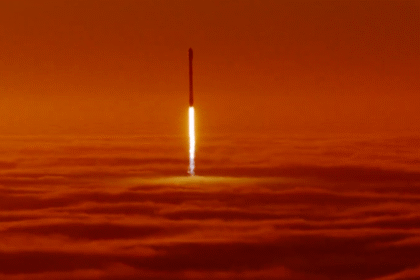In a bold and sweeping call for European technological sovereignty, French President Emmanuel Macron has urged Europe to take decisive action in the race for space dominance, challenging the continent to compete head-to-head with the United States and China. Speaking amid growing global competition in space exploration, satellite technology, and defense systems, Macron’s remarks reflect a strategic pivot in European policy — one aimed at asserting independence in an increasingly multipolar and contested space frontier.
His challenge, both ambitious and urgent, signals the beginning of a new era in European aerospace ambitions. It comes at a time when Europe faces mounting pressure to reclaim its strategic autonomy, not only in defense and energy but also in the fast-evolving realm of space technology. Macron’s speech marks a turning point, underscoring Europe’s lag behind global superpowers and calling for a more cohesive, well-funded, and visionary approach to the space sector.
Europe’s Wake-Up Call in the New Space Race
The modern space race is no longer limited to Cold War-style moon missions or symbolic gestures of cosmic presence. Today, it is a high-stakes domain tied closely to national security, digital sovereignty, climate observation, and economic power. China and the United States, driven by billion-dollar investments and robust private-public partnerships, have rapidly advanced their space capabilities — from satellite constellations and reusable rockets to lunar exploration and Mars missions.
In stark contrast, the European Union’s space policy, while technically competent and historically collaborative through organizations like the European Space Agency (ESA), has often been fragmented and slow-moving. Macron’s appeal seeks to disrupt that pattern. He envisions a Europe that not only keeps pace with global competitors but leads in innovation, autonomy, and technological development.
“We must have a European space strategy that is coherent, ambitious, and sovereign,” Macron declared during a high-level space and defense conference in Toulouse, France. “We cannot remain dependent on others for critical satellite services, launch technologies, or orbital data collection. Space is no longer a luxury of scientific curiosity — it is the backbone of modern power.”
A Vision for European Space Sovereignty
Macron’s vision centers on consolidating and scaling up Europe’s space efforts through better coordination among member states, increased funding, and partnerships with the private sector. His proposal includes:
- A Sovereign European Launcher Strategy: Macron advocates for the development of next-generation launch vehicles, capable of competing with SpaceX’s Falcon and Starship rockets or China’s Long March series. Europe’s Ariane 6 rocket, long in the making and plagued by delays, exemplifies the urgent need for reform in project execution and industrial efficiency.
- European Satellite Constellations: The EU already has satellite infrastructure like Galileo (navigation) and Copernicus (Earth observation), but Macron wants to see more aggressive development of sovereign broadband satellite constellations to rival SpaceX’s Starlink or China’s Guowang network. These would be critical in ensuring secure communications and data resilience across Europe.
- Strategic Autonomy in Space Defense: With military tensions increasing globally, Macron highlighted the importance of space-based surveillance, early-warning systems, and space defense capabilities. He called for greater integration of space assets into NATO’s European pillar and EU defense coordination structures.
- Public-Private Ecosystem Expansion: The rise of private players like Elon Musk’s SpaceX and Jeff Bezos’ Blue Origin in the U.S., or CASC and iSpace in China, has revolutionized space innovation. Macron aims to support a similar wave of European startups and aerospace firms through investment, regulatory support, and fast-tracked procurement mechanisms.
Addressing the Structural Weaknesses
Despite Macron’s bold declarations, the road to a truly sovereign European space capability is fraught with challenges. Historically, European space policy has been hampered by bureaucratic delays, competing national interests, and underfunding. Unlike the United States, where NASA works closely with the Pentagon and private industry, or China, where space policy is centrally controlled, the EU must coordinate among 27 member states, each with its own priorities and industrial lobbies.
The European Space Agency, though successful in scientific missions, lacks enforcement power and is not directly under EU authority. Macron has proposed streamlining space governance and giving the European Commission a more active role in space funding and direction-setting.
Budget constraints are also a key concern. The EU’s space spending, though significant, still lags far behind that of the U.S. or China. For instance, NASA’s 2024 budget exceeds $27 billion, compared to ESA’s roughly $8 billion — and Europe’s investments are spread across more countries and institutions.
To close this gap, Macron is advocating for an increase in pooled European investments and has called on Germany, Italy, and other major economies to commit to a unified strategic roadmap.
France’s Leading Role and Domestic Priorities
France has long been Europe’s most prominent space power, with deep ties to the Ariane rocket program, a strong military space branch, and significant aerospace companies like Airbus and Thales. Macron’s push positions France not only as a political leader but also as the industrial anchor of Europe’s new space era.
Domestically, Macron’s government has allocated additional resources to the French Space Command (Commandement de l’Espace), signaling the increasing militarization of space in French doctrine. The president also emphasized the importance of safeguarding French satellite infrastructure from potential threats, including anti-satellite weapons and cyberattacks.
Furthermore, France has been actively supporting startups and research institutions through the France 2030 investment plan, which includes funding for space innovation and quantum technologies.
Implications for Global Competition
Macron’s speech is not just a European rallying cry — it is a signal to the world that Europe refuses to be relegated to the sidelines of space competition. As Washington and Beijing gear up for future lunar bases and Mars missions, Europe’s role remains critical in shaping international space norms, commercial access, and cooperation.
A more assertive European space policy could foster multipolar balance in orbital governance and prevent monopolization by a few dominant powers. It also has implications for transatlantic relations. While the U.S. might welcome European cooperation, a truly sovereign European space apparatus may lead to friction over procurement, intelligence sharing, and satellite infrastructure.
On the other hand, China may see a resurgent Europe as a potential check on U.S. influence — or as a competitor for partnerships with emerging spacefaring nations in Africa, Latin America, and Asia.
Conclusion: A Continental Mission, Not a National One
Macron’s challenge is both a rallying cry and a strategic imperative. Europe stands at a crossroads where the decisions made in the next few years will define its place in the 21st-century space order. The continent has the scientific talent, industrial capacity, and political clout to lead — but it must overcome internal divisions and commit to a common mission.
Europe’s pursuit of space sovereignty is not about matching America or China for prestige; it’s about ensuring that the continent remains a central actor in the technologies that will shape global power, security, and economy for generations. Macron has issued the call — whether Europe answers it with unity and ambition remains to be seen.









